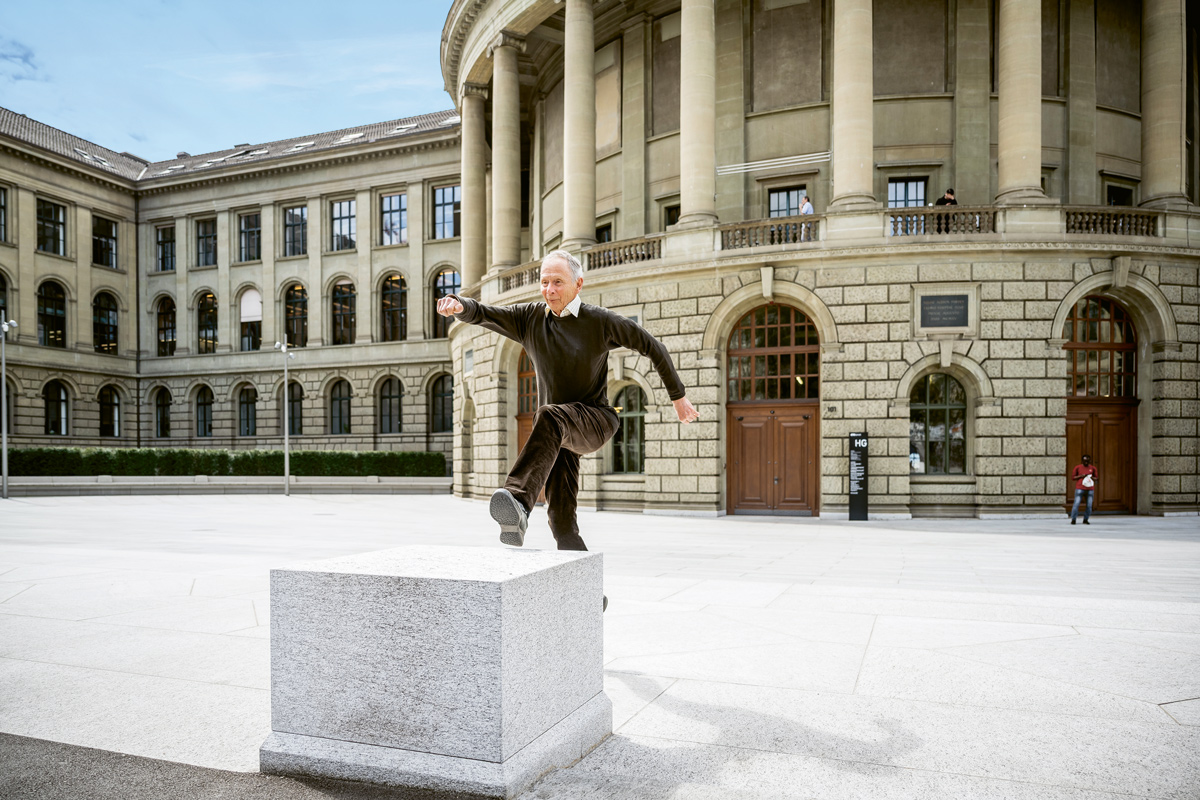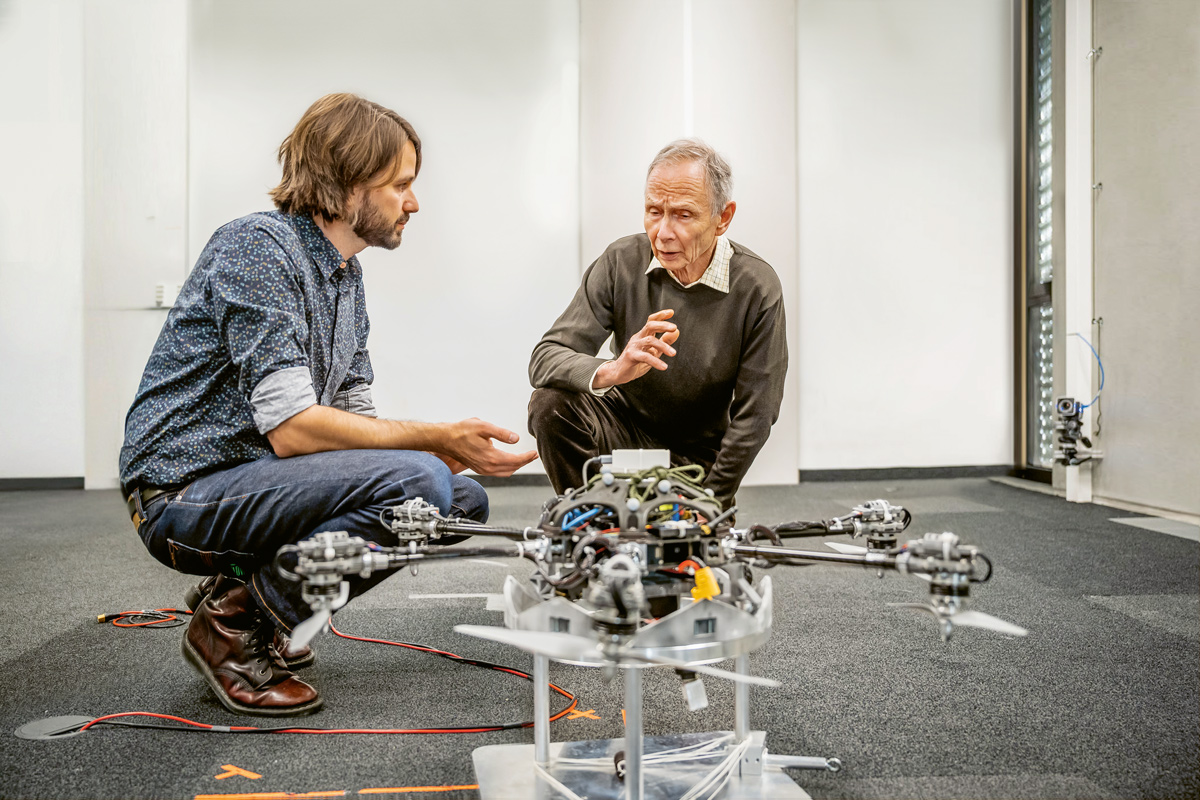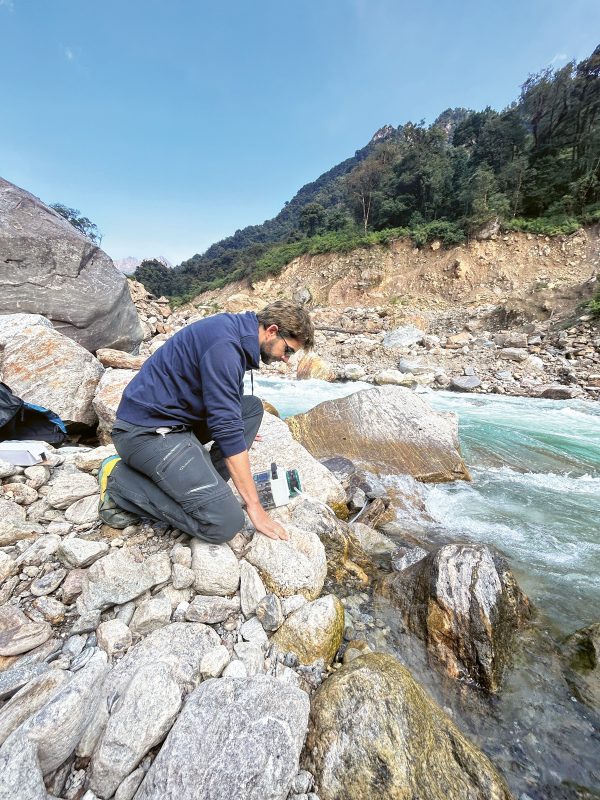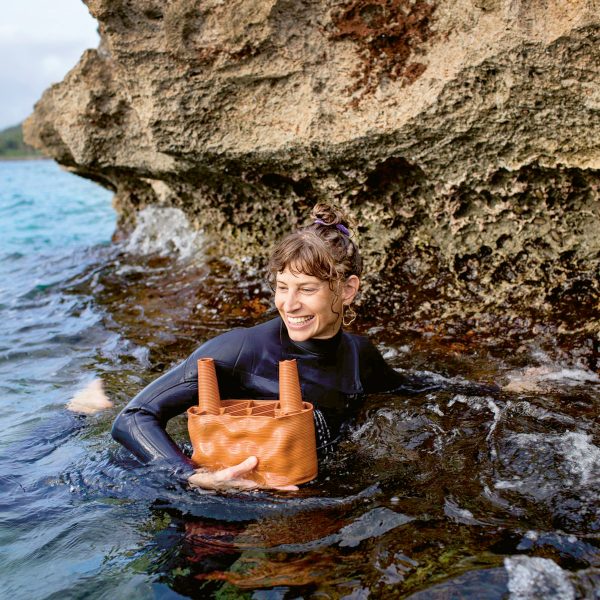A school for life

A school for life
His time at ETH was anything but easy for Finnish entrepreneur Jukka Helkama – and proof that he could rise to any challenge that came his way.
You began your mechanical engineering studies at ETH Zurich in 1965. How do you remember your time here?
JUKKA HELKAMA – It was the toughest period of my life (laughs). Studying at ETH had always been my father’s dream. He was a gifted engineer and had secured a place in Zurich. But then World War II broke out in Finland, and he ended up studying in Sweden. So it was I who fulfilled his dream and enrolled at ETH. I wasn’t particularly talented at maths and had to work extremely hard for the first two years.
What did you take away from your student years?
Not the methods for solving differential equations or integrals, but the knowledge that I can overcome almost any obstacle. This proved to be of great help in my professional life. I often used to tell myself: “You made it through ETH, so you can manage this too.” And I met my wife at ETH. She was studying architecture. Luckily, we didn’t meet until I was in my seventh semester and the most demanding phase of my studies was already over.
Where did your career take you?
After graduating, I completed officer training and joined our family business, Helkama, which my grandfather had founded in Tampere in 1905. Originally, it was a trading company for bicycles and sewing machines. Finland was poor at the time, and most of the population lived in rural areas. But fortunately, there were a few factories in Tampere, so people there had a bit of money. A sewing machine enabled them to make their own clothes, and a bicycle made the journey to work much quicker.

© ETH Foundation / Daniel Winkler
“ETH was a cornerstone in my life.”
What was the state of the company when you joined in 1972?
After my grandfather’s death, my father and his brothers took over the firm, which by then had moved its headquarters to Helsinki. That was after World War II. The introduction of licence fees for imports had made trading more difficult, so Helkama started producing its own goods, setting up a bicycle factory and a radio factory, which later went on to make televisions. The brothers were highly innovative and made significant expansions to the business, adding car imports, motorcycle manufacturing and cable technology. I was responsible for the bicycle and cable business.
Was your ETH education useful to you in that role?
I was chiefly a businessman and factory manager then. In 1981, I attended Stanford as a Sloan fellow and completed a Business Management programme that was valuable for my day-to-day work. But my time at ETH also proved to be very useful. For one, I could hold my own in discussions with our engineers. For another, I never found it difficult to work under pressure or maintain accuracy in long-term projects and complete them on time. These are skills that ETH taught me.
In 2005, you handed over the business to your daughter, who now leads Helkama in its fourth generation. How do you occupy yourself today?
I see myself as part businessman, part engineer and part humanist. After my professional career, I became especially interested in how we can make the world a bit better. This year, Helkama sold its cable division – it had reached a critical size and the investment required for further growth would’ve probably been too high. We’re currently investing some of the proceeds in Adwatec, now also a member company of the Helkama Group. Adwatec makes cooling systems for high-performance electrical engineering, helping to greatly improve the reliability and efficiency of power grids and electric motors used in ships or wind turbines. Some time ago, I also bought, renovated and automated an old river power station, including a diversion stream with spawning grounds for salmon. And I spend time with my eight grandchildren, out in my rowing boat, or competing in Masters Athletics events. My disciplines are triple jump, hurdles and sprint.
You’ve been supporting talent at ETH for 15 years. What’s your motivation?
ETH was a cornerstone in my life. I’m very grateful for everything I learned here, and by supporting young students I’m glad to be able to give something back. It’s interesting to see how applied the teaching is nowadays, and how much broader the curriculum has become. A welcome development – and one I’m delighted to support.


